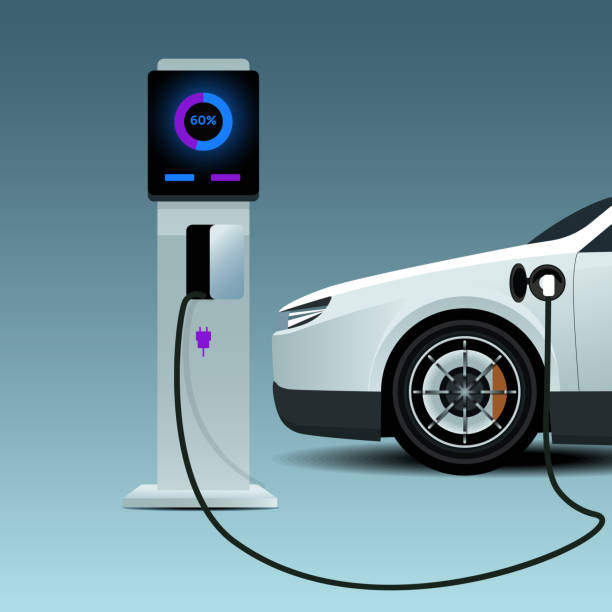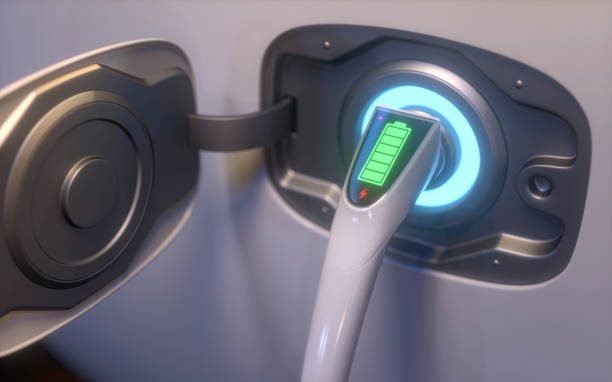Introduction to EV Brake System Maintenance
Table of Contents
Maintaining the brake system in your electric vehicle (EV) is crucial for ensuring both safety and performance. Unlike traditional vehicles, EVs often use regenerative braking, which reduces wear on conventional brake components but doesn’t eliminate the need for regular maintenance. Understanding the unique aspects of EV brake systems and adhering to a consistent maintenance routine can help prolong the life of your brakes and keep your vehicle running smoothly. This EV brake system maintenance guide will provide you with essential tips and insights into maintaining your EV’s brake system effectively.
Understanding Regenerative Braking

Regenerative braking is a key feature in electric vehicles that helps improve efficiency by converting kinetic energy into electrical energy during deceleration. This process not only extends the driving range but also reduces the reliance on traditional friction brakes. However, it’s important to note that while regenerative braking decreases the wear on brake pads and discs, it doesn’t eliminate the need for their maintenance. Over time, components like brake pads can still wear out, and brake discs may suffer from corrosion if not used regularly. Therefore, regular checks and proper understanding of how regenerative braking works are essential for maintaining your EV’s brake system.
Routine Brake System Inspections
Regular brake system inspections are vital to ensure your EV’s brakes function correctly and safely. It’s recommended to have your brakes checked every six months or 6,000 miles, though this can vary based on driving conditions and manufacturer recommendations. Key components to inspect include the brake pads, discs, and brake fluid. Look for signs of wear, such as thinning brake pads or grooves on the brake discs, which indicate it’s time for a replacement. Also, pay attention to any unusual noises or vibrations during braking, as these could signal underlying issues. Keeping a close eye on these elements can help you address problems early and avoid costly repairs down the road.
Common Brake Issues in EVs
Even with regenerative braking, EVs can experience several common brake issues. One major concern is the corrosion of brake discs, especially if the vehicle isn’t driven frequently. The regenerative braking system reduces the use of traditional brakes, leading to potential rust buildup on the discs. This rust can affect braking performance and increase wear on the brake pads.
Another issue is brake pad wear. Although regenerative braking reduces the need for friction braking, it doesn’t eliminate it entirely. Over time, brake pads can still wear out, necessitating regular checks and replacements. It’s important to listen for any unusual noises, such as squeaking or grinding, which can indicate worn brake pads.
Brake fluid maintenance is another critical aspect. Over time, brake fluid can absorb moisture from the air, reducing its effectiveness and potentially leading to brake failure. Regularly checking and replacing the brake fluid as per the manufacturer’s recommendations can prevent issues related to braking performance and safety.
EV owners should also be aware of the brake pedal feel. If the pedal feels spongy or less responsive, it could indicate air in the brake lines or a problem with the brake fluid. Addressing these issues promptly can ensure the brake system remains in optimal condition.
In summary, regular inspections and maintenance are essential for identifying and addressing common brake issues in EVs. By keeping an eye on brake disc corrosion, brake pad wear, and brake fluid levels, you can maintain the safety and performance of your electric vehicle’s brake system.
DIY Brake Maintenance Tips
While professional inspections are essential, there are several DIY maintenance tasks you can perform to keep your EV’s brakes in good condition. Start by regularly checking the brake pads and discs for signs of wear and corrosion. Cleaning the brake components can also help remove debris that might affect performance.
To check the brake pads, look for visible wear. If the pads are less than a quarter-inch thick, it’s time to replace them. For the brake discs, inspect for rust or grooves. Light rust can be cleaned off, but deep grooves or heavy rust might require professional attention.
Brake fluid levels should also be monitored. Ensure that the brake fluid is at the proper level and isn’t contaminated. You can check the brake fluid reservoir under the hood and top it up if necessary. However, be cautious and use the correct type of brake fluid specified by the manufacturer.
Additionally, listen for any unusual noises while braking. Squeaking or grinding sounds can indicate worn brake pads or other issues that need addressing. If you notice any significant problems, such as reduced braking efficiency or a spongy brake pedal, it’s crucial to seek professional assistance promptly.
Professional Brake Maintenance Services
Professional brake maintenance services are crucial for the longevity and safety of your EV’s braking system. A qualified technician can perform thorough inspections, identify potential issues, and provide necessary repairs or replacements. During a professional service, expect a comprehensive check of brake pads, discs, and fluid levels, along with any required adjustments or software updates.
Choosing a reputable service provider with experience in EV maintenance ensures that your vehicle receives the best care possible. Look for certified EV mechanics who understand the unique aspects of electric vehicle brake systems. They should be equipped to handle both the regenerative and friction braking components effectively.
During a professional service, the technician will inspect the brake pads for wear, measure the thickness of the brake discs, and check the brake fluid for contamination. They will also ensure that the regenerative braking system is functioning correctly and that there are no software issues affecting brake performance.
Professional maintenance services can also include brake fluid replacement, brake pad and disc replacement, and system diagnostics. Regular professional inspections help catch potential problems early, preventing costly repairs and ensuring the safety and reliability of your EV’s brake system.
In summary, professional brake maintenance is an essential part of owning an EV. Regular visits to a qualified technician can help maintain optimal braking performance and extend the life of your vehicle’s brake components.
Advanced Brake System Technologies

The field of brake system technology is continually evolving, offering new advancements for electric vehicles. Innovations such as enhanced regenerative braking systems, advanced corrosion-resistant brake materials, and improved brake fluid formulations are helping to address common maintenance challenges.
Enhanced regenerative braking systems are designed to be more efficient, capturing more kinetic energy and converting it into electrical energy. This not only improves the driving range of EVs but also reduces wear on traditional brake components even further.
Advanced corrosion-resistant brake materials are being developed to combat the issue of rust buildup on brake discs. These materials can withstand harsh environmental conditions, extending the lifespan of brake components and reducing maintenance needs.
Improved brake fluid formulations are another area of advancement. These new formulations are designed to be more resistant to moisture absorption, maintaining their effectiveness for longer periods and reducing the frequency of brake fluid replacements.
Additionally, future trends may include more sophisticated diagnostic tools and predictive maintenance technologies that can anticipate issues before they become significant problems. These technologies use data from the vehicle’s sensors to monitor the brake system’s health and alert the driver to any potential issues.
Staying informed about these advancements can help you better maintain your EV’s brake system and take advantage of the latest improvements.
FAQs on EV Brake Maintenance
How often should EV brakes be inspected?
EV brakes should be inspected every six months or 6,000 miles, though this can vary based on driving habits and manufacturer recommendations. Regular inspections help catch issues early and ensure your brakes remain in optimal condition.
What are the signs of brake system issues?
Common signs include unusual noises (such as squeaking or grinding), vibrations during braking, longer stopping distances, and visible wear or corrosion on brake components. If you notice any of these symptoms, it’s essential to have your brakes checked by a professional.
Can regenerative braking fully replace traditional braking?
No, regenerative braking reduces the use of traditional friction brakes but doesn’t eliminate the need for them. Traditional brakes are still necessary for sudden stops and situations where regenerative braking alone isn’t sufficient. Regular maintenance of both systems is crucial for overall safety and performance.
What causes brake disc corrosion in EVs?
Brake disc corrosion in EVs is often caused by infrequent use of traditional friction brakes. Since regenerative braking reduces the reliance on these brakes, the discs can accumulate rust over time, especially in humid or wet conditions. Regular driving and periodic use of friction brakes can help prevent this issue.
How can I prevent brake pad wear in my EV?
While regenerative braking helps reduce brake pad wear, it doesn’t eliminate it entirely. To prevent excessive wear, ensure regular inspections and replace brake pads when necessary. Avoid aggressive driving habits that can put extra strain on the brake pads and use regenerative braking effectively to minimize wear.
Is professional brake maintenance necessary for EVs?
Yes, professional brake maintenance is essential for EVs. Qualified technicians can perform thorough inspections, identify potential issues, and provide necessary repairs or replacements. Regular professional maintenance ensures the longevity and safety of your EV’s brake system.
By addressing these FAQs, you can ensure a comprehensive understanding of EV brake maintenance, helping you keep your vehicle safe and reliable.


